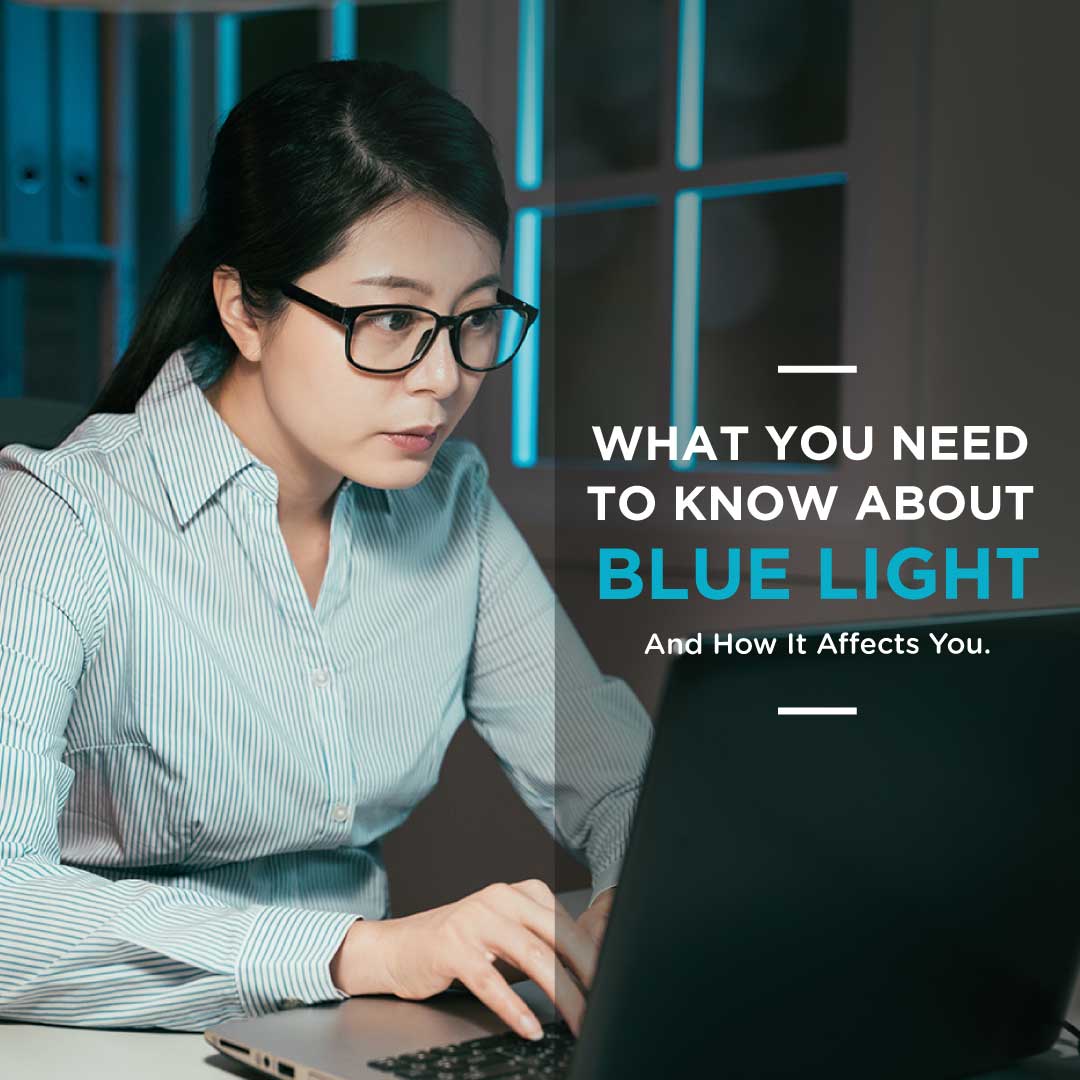
We have a body clock called the Circadian Rhythm that regulates our sleep-wake cycle. Blue Light plays an important role in synchronizing this system. Exposure to Blue Light from the sun during the day suppresses the release of a hormone called Melatonin which puts you into a state of quiet wakefulness that helps promote sleep2. This aids our wellbeing, alertness and cognitive performance needed to perform during the day.
However, with the introduction of digital devices into our lives, sources of Blue Light are not limited to only the sun during the day. It extends to all light emitting devices such as your laptop, tablet and mobile phones. This chronic exposure to low intensity blue light, especially directly before bedtime, may have implications on our sleep quality and circadian rhythm, disrupting our body clock3. That being said, here are some common questions you may have about Blue light!
Does Blue Light from digital devices damage my eyes?
High intensity Blue Light or any bright light from any source is potentially hazardous to the eye, for example, staring directly at the sun (don’t do that!). However, Blue Light emitted from LED screens are usually of low intensity. Furthermore, our cornea and crystalline lenses, which are our eyes’ natural filters, absorbs some amount of these Blue Light before it reaches the retina.
Despite potential effects on your sleep pattern, studies have yet to show that exposure to Blue Light from digital devices harms the retina or causes any eye disease in humans.
How does Blue filter help?
Filtering Blue Light before bed time may attenuate LED induced melatonin suppression, reduce sleep disturbance, and other related consequences among the general population1, 5.
Should I use Blue Light filters?
If you find yourself staring at the rectangle of your screen for more than 4 hours per day, especially before bedtime, it makes sense to filter those extra Blue Light. However, if you are experiencing digital fatigue and eye strain due to long hours of near work, filtering Blue Light alone may not solve the problem. Digital eye strain may be a combination of one or more factors of glare sensitivity, accommodative fatigue, binocular vision abnormalities, dry eyes, and poor posture.
For older folks who have undergone cataract surgery, newly implanted lens might not have the yellowing of the original natural lens that filters blue light. Blue Light filters will be effective in preventing the retina from potential Blue Light exposure as more studies recommend using blue filter implants4.
At the end of the day, Blue Light has its role to play and have their pros and cons depending on one’s lifestyle. To cater for individual needs, a comprehensive eye examination is required to assess and determine the necessary steps to take for eye health and vision.
Article contributed by:

Caleen Koh
Dip Optometry (S’pore)
References
- Anne-Marie Chang, D. A. (2015). Evening use of light-emitting eReaders negatively affects sleep, circadian timing, and next-morning alertness. Natl. Acad. Sci. U S A 112:1232–1237.
- Irina V. Zhdanova MD, P. &. (2003). Melatonin, circadian rhythms, and sleep. Current Treatment Options in Neurology volume 5(2003), 225–229.
- Ivanov, S. W. (2019). The inner clock—Blue light sets the human rhythm.
- R J Symes1, . a. (2012). Blue-blocking intraocular implants should be used routinely during phacoemulsification surgery – Yes. Eye (Lond), 1397–1399.
- Stéphanie van der Lely 1, S. F.-J. (2015). Blue blocker glasses as a countermeasure for alerting effects of evening light-emitting diode screen exposure in male teenagers. Adolescent Health.



